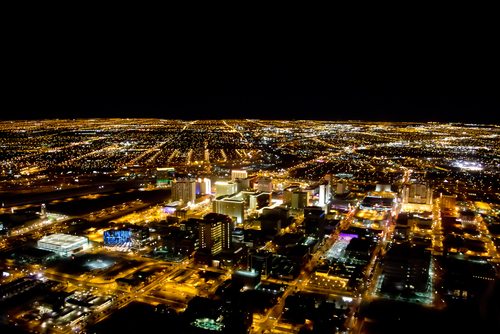
August 5, 2013; Vegas Inc.
Las Vegas is home to a lot of wealth, but it falls short when it comes to philanthropy. Nevada dropped from the ninth most generous state in 2004 to the 37th in 2009, with contributions falling 34 percent while average incomes fell only 6 percent.
Sign up for our free newsletters
Subscribe to NPQ's newsletters to have our top stories delivered directly to your inbox.
By signing up, you agree to our privacy policy and terms of use, and to receive messages from NPQ and our partners.
It’s a challenge facing many Sun Belt cities—including Orlando, Houston, Phoenix, and Los Angeles—that are relatively young, lack a long tradition of philanthropy and whose wealth is not found in old family lines and their foundations, but in entrepreneurs who made their millions in their own lifetimes.
It’s not that Sin City lacks generous donors; many community members are very generous. Vegas Inc., the local business publication affiliated with the Las Vegas Sun, asked some local philanthropic leaders what could be done to increase their ranks and encourage philanthropy there.
Some suggestions from Vegas locals:
- Elaine Wynn, director at Wynn Resorts: “It’s a very, very delicate topic. The only thing I can say is that there’s nothing stronger than a compelling cause.”
- William Boyd, director of Boyd Gaming: “Publicity—that’s what will encourage others to give. Those who do give need to set the example.”
- Robert Goldstein, executive VP at Las Vegas Sands: “I think a lot of leadership occurs by example. And you’ve got to lead in two ways: You have to write checks and show support, as well as encourage others and remind them that they have an obligation and can do it financially.”
- Jim Rogers, owner of Sunbelt Communications: “The only way, I think, to draw in the wealth of the community is to say, ‘Look, this is a question of pride. Are you in any way proud of the fact that you have done so well in Vegas? Are you proud of the fact that it has grown so much?’”
- Staci Columbo Alonso, chief marketing officer for Station Casinos: “Seeing philanthropic efforts from one person makes people look inside and find what means the most to them. I have to believe that most people really want to make a difference.”
- Tony Marlon, founder and CEO of the largest HMO in Nevada: “Getting more people involved in philanthropy takes time. A community needs to have some age on it. Las Vegas is very young when you compare it to, say, Minneapolis, Philadelphia, New York, and Boston, where you’ve had numerous wealth-creating events like corporate buyouts and mergers. People who make a lot of money in their community feel obligated to give back to it. There needs to be a history of these events, and we have not had a whole lot of time for that to occur.”
- Don Snyder, executive dean for strategic development at UNLV: “Donors need role models, especially in a young city like this. The philanthropy infrastructure needs to be developed, just like social services, education, highways and roads. On the East Coast, several generations of wealth have developed there, and those families got used to being rich. They got involved with philanthropy and saw the benefits of it. That’s what has to happen in a young city like Las Vegas. People have to get comfortable that their wealth will survive.”
- Alex Epstein, executive manager of El Cortez: “Philanthropy starts on a very basic level with education. I learned a lot from my mom. She was my Girl Scout leader. It’s a cultural responsibility. It’s important to get involved.”
It’s likely that philanthropic and civic leaders in other Sun Belt cities would say the same.—Larry Kaplan













